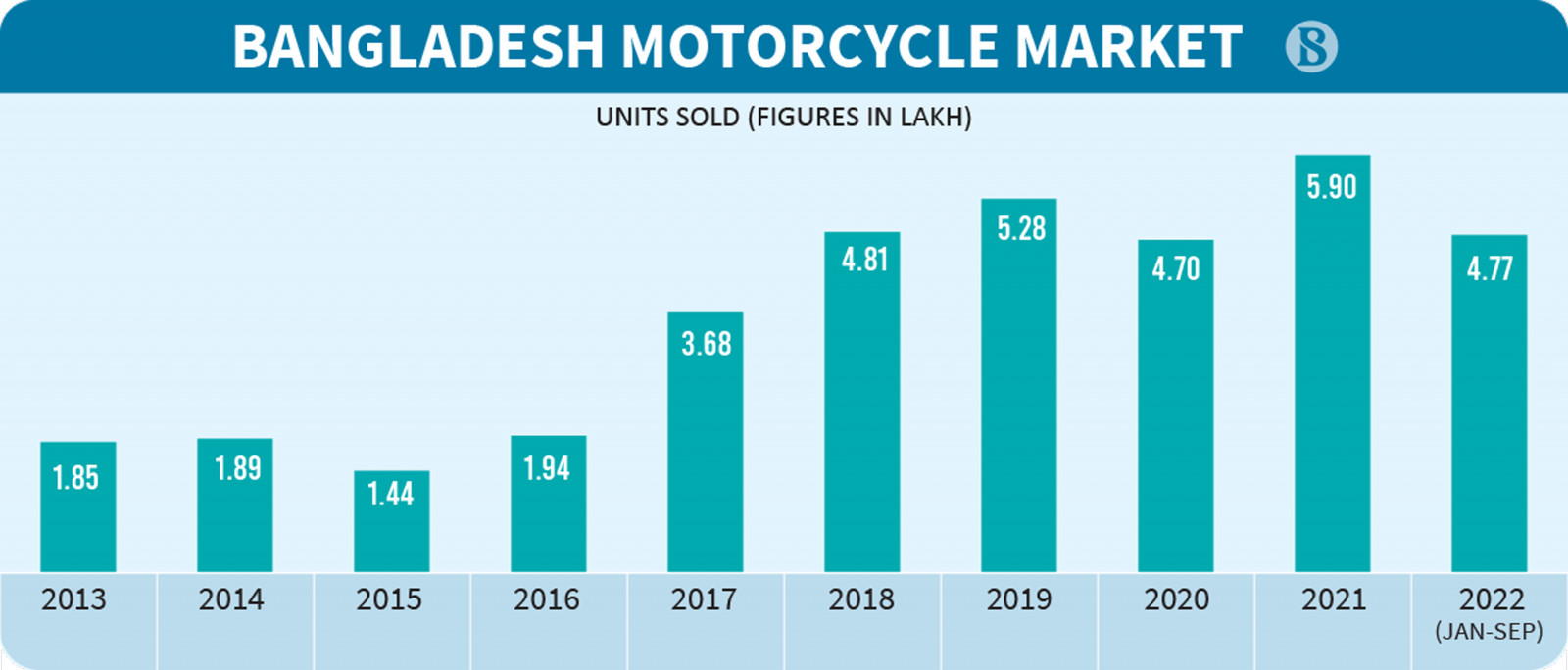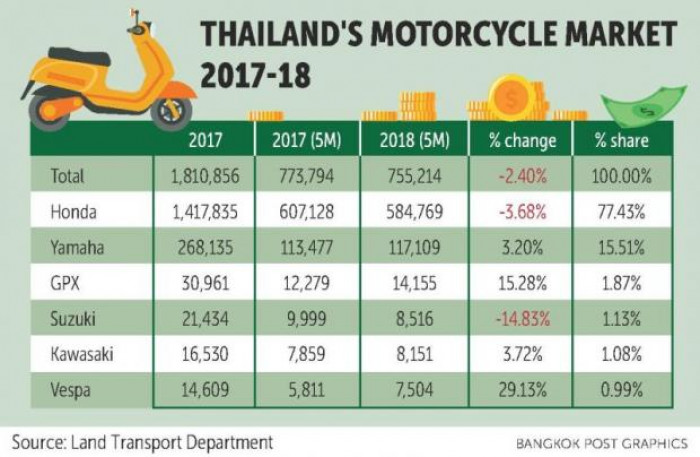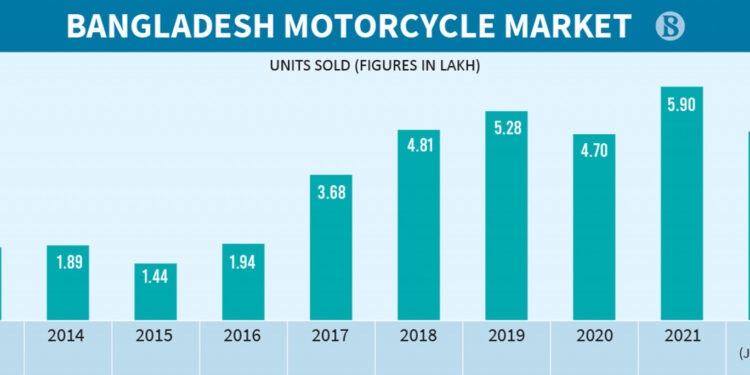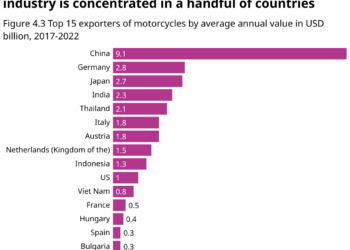Delving into the intricate relationship between fuel prices and the motorcycle market, this exploration promises to shed light on crucial insights that drive consumer behavior and industry trends.
Providing a comprehensive look at how fuel prices influence the motorcycle market, this analysis aims to uncover the key factors that shape the industry landscape.
Overview of the motorcycle market

The motorcycle market is a crucial sector in the transportation industry, offering a wide range of options for commuters, enthusiasts, and professionals. Motorcycles are popular for their fuel efficiency, affordability, and flexibility in navigating through traffic. Let's delve into the current state of the motorcycle market, key players, and the significance of motorcycles in the transportation sector.
Current State of the Motorcycle Market
The motorcycle market is experiencing steady growth globally, with a rise in demand for two-wheelers due to their cost-effectiveness and ease of use. Emerging economies are witnessing a surge in motorcycle sales, driven by increasing urbanization and the need for efficient and affordable transportation options.
- Key Players: Companies like Honda, Yamaha, Harley-Davidson, and Kawasaki are leading players in the motorcycle industry, offering a diverse range of motorcycles catering to different segments of the market.
- Trends: Electric motorcycles are gaining traction in the market, with advancements in battery technology and a growing emphasis on sustainability. Customization and personalization options are also becoming popular among consumers.
Significance of Motorcycles in the Transportation Sector
Motorcycles play a vital role in providing last-mile connectivity, especially in congested urban areas where cars may not be a practical choice. They offer a cost-effective and efficient mode of transportation, reducing travel time and fuel consumption for commuters. Additionally, motorcycles are used for recreational purposes, such as touring and off-road adventures, contributing to the overall appeal of the market.
Factors influencing fuel prices

Fluctuations in fuel prices are influenced by a variety of factors that can impact the global economy and individual markets.
Global Events Impact
Global events such as geopolitical tensions, natural disasters, and changes in oil production quotas can have a significant impact on fuel prices. For example, conflicts in oil-producing regions can disrupt supply chains and lead to a decrease in production, causing prices to rise.
On the other hand, an increase in production due to agreements among oil-producing countries can lead to a decrease in fuel prices.
Economic Conditions Relationship
The relationship between fuel prices and economic conditions is complex. In times of economic growth, there is typically an increase in demand for fuel as industries expand and consumers have more disposable income. This increased demand can lead to higher fuel prices.
Conversely, during economic downturns, demand for fuel may decrease, causing prices to drop. Additionally, fluctuations in currency exchange rates and inflation can also impact fuel prices, as they affect the cost of production and transportation.
Impact of fuel prices on motorcycle sales
Fluctuations in fuel prices have a significant impact on consumer behavior towards motorcycles. When fuel prices rise, consumers tend to lean towards more fuel-efficient models to save on operating costs, while a decrease in fuel prices may lead to an increase in sales of larger, less fuel-efficient motorcycles.
Comparison between fuel-efficient motorcycles and traditional models
During price fluctuations, the sales performance of fuel-efficient motorcycles versus traditional models can vary. Fuel-efficient motorcycles, such as scooters and electric bikes, tend to see a boost in sales when fuel prices are high, as they offer cost-effective transportation options.
On the other hand, traditional models with larger engines may experience a decline in sales during these periods.
Strategies adopted by motorcycle manufacturers
Motorcycle manufacturers often adjust their product offerings and marketing strategies in response to changes in fuel prices. They may focus more on promoting fuel-efficient models during times of high fuel prices to cater to consumer demand. Additionally, manufacturers may invest in research and development to improve the fuel efficiency of their motorcycles or introduce new technologies, such as hybrid or electric options, to adapt to market changes.
Innovation and technology in response to fuel price impact
In the face of fluctuating fuel prices, the motorcycle industry has seen a significant focus on innovation and technology to address the impact on consumers. Manufacturers have been striving to develop motorcycles that are more fuel-efficient and environmentally friendly to cater to changing market demands.
Technological advancements for improved fuel efficiency
Manufacturers have been integrating advanced technologies into motorcycles to enhance fuel efficiency. Features such as electronic fuel injection systems, improved engine designs, and aerodynamic enhancements have all contributed to reducing fuel consumption and increasing mileage.
Role of alternative fuels and electric motorcycles
Alternative fuels, such as biofuels and ethanol blends, have emerged as viable options in the motorcycle market to reduce reliance on traditional gasoline. Additionally, the rise of electric motorcycles powered by batteries has gained traction, offering a sustainable and cost-effective alternative to fuel-powered bikes.
Consumer preferences towards eco-friendly options
In response to fuel price changes, consumers are increasingly leaning towards eco-friendly motorcycle options. The shift towards electric motorcycles and hybrids reflects a growing awareness of environmental concerns and a desire for more sustainable transportation solutions.
Final Summary
In conclusion, the impact of fuel prices on the motorcycle market is a multifaceted phenomenon that continues to shape the dynamics of the industry. By understanding these dynamics, stakeholders can navigate market changes effectively and innovate for the future.
FAQ Section
How do fluctuations in fuel prices affect motorcycle sales?
Fluctuations in fuel prices can influence consumer preferences towards more fuel-efficient motorcycles, impacting sales in the market.
What strategies do motorcycle manufacturers implement to address changes in the market due to fuel prices?
Motorcycle manufacturers may focus on developing fuel-efficient models, adjusting pricing strategies, or promoting alternative fuel options to adapt to market shifts.
Are electric motorcycles gaining popularity in response to fuel price fluctuations?
Yes, electric motorcycles are becoming increasingly popular as consumers seek eco-friendly alternatives in light of fuel price changes.











